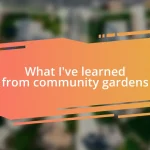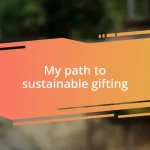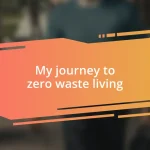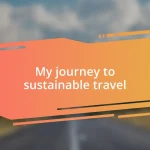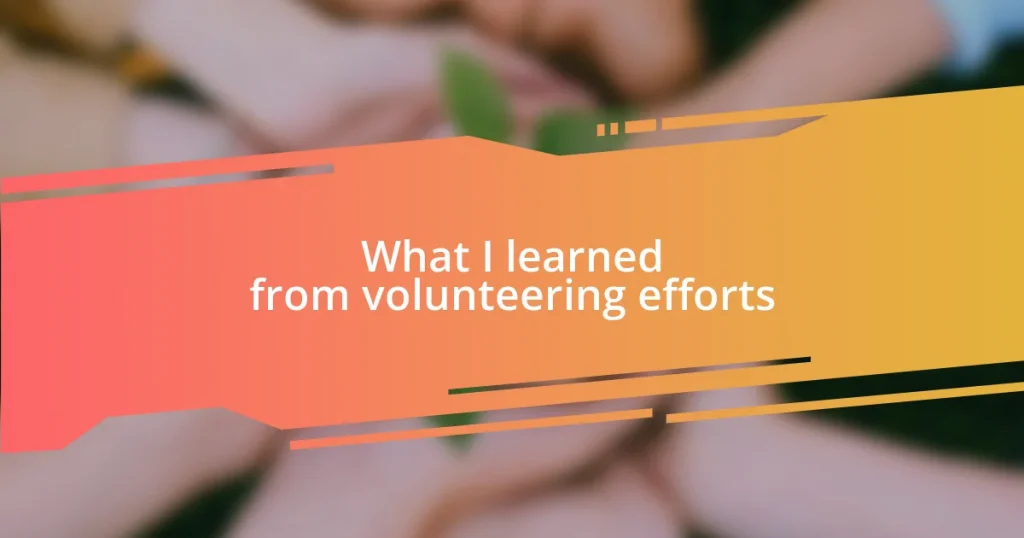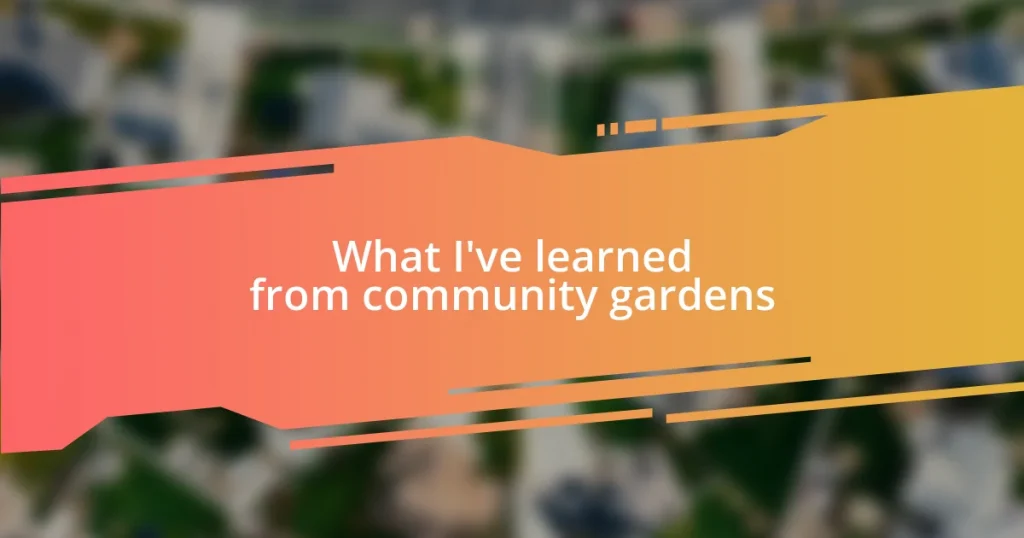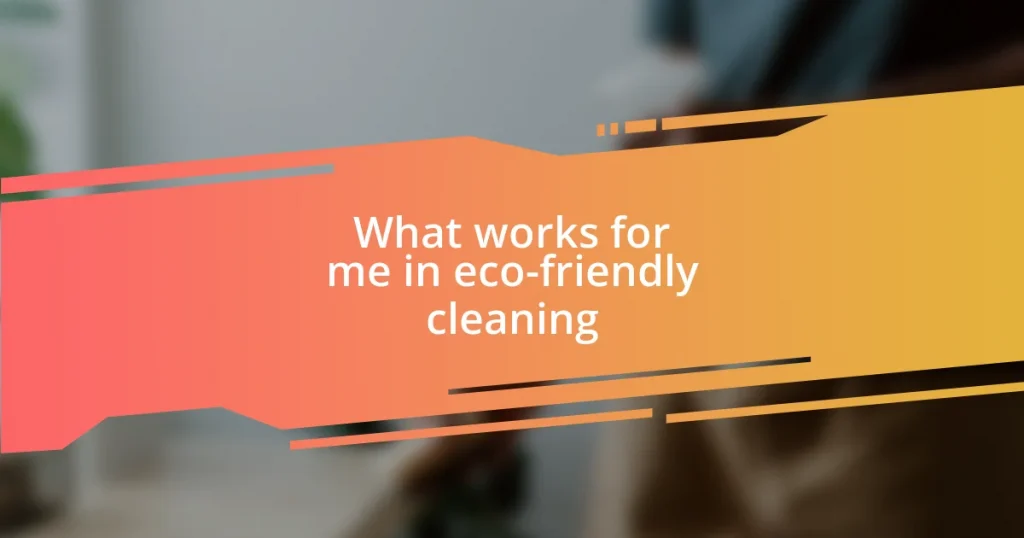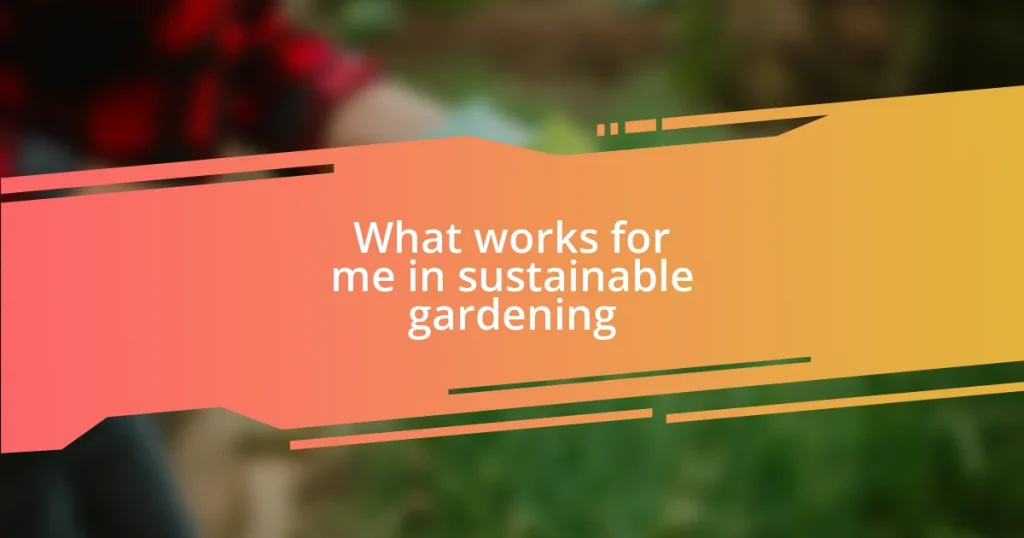Key takeaways:
- Volunteering fosters personal growth, empathy, and connection, enhancing understanding of community struggles and participating in meaningful experiences.
- Key skills gained from volunteering include leadership, problem-solving, and communication, which are applicable in both personal and professional contexts.
- Building relationships through shared service creates lasting bonds and emphasizes the importance of adaptability, listening, and passion in making a positive impact.
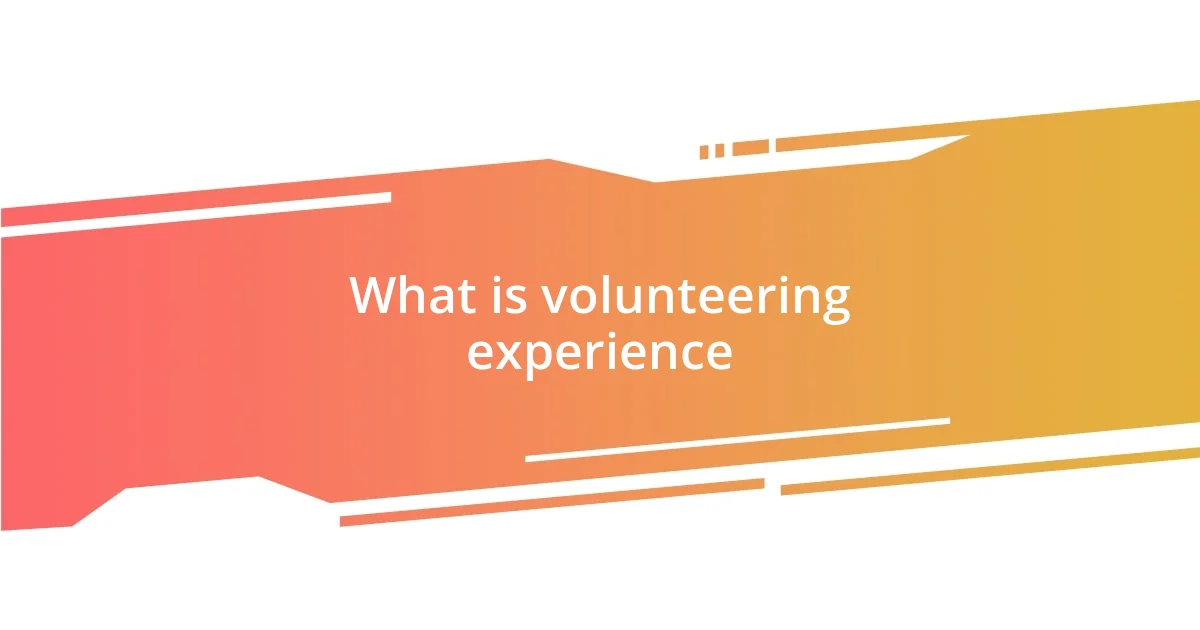
What is volunteering experience
Volunteering experience is more than just an opportunity to give back; it’s a journey of personal growth and connection. I recall the first time I volunteered at a local soup kitchen, feeling a mix of nervousness and excitement. Do you remember the first meaningful experience you had helping others? It’s moments like these that not only challenge our comfort zones but also deepen our understanding of community and compassion.
When you immerse yourself in volunteering, you often find yourself in unexpected situations that teach valuable life lessons. I remember a day spent cleaning up a local park with a group of strangers who quickly became friends. As we laughed and shared stories while working, I realized how easily connection can form when you’re united by a common purpose. Have you ever felt that kind of instant camaraderie with others? It’s a reminder that we all crave connection.
Furthermore, volunteering often opens our eyes to the struggles and realities others face, fostering empathy in a profound way. I once spent time helping children with reading difficulties, noticing their determination to improve despite challenges. Wasn’t it incredible how their small victories felt like personal triumphs for us all? This emotional depth makes volunteering a life-changing experience, allowing us to appreciate different perspectives and enrich our lives with diverse narratives.
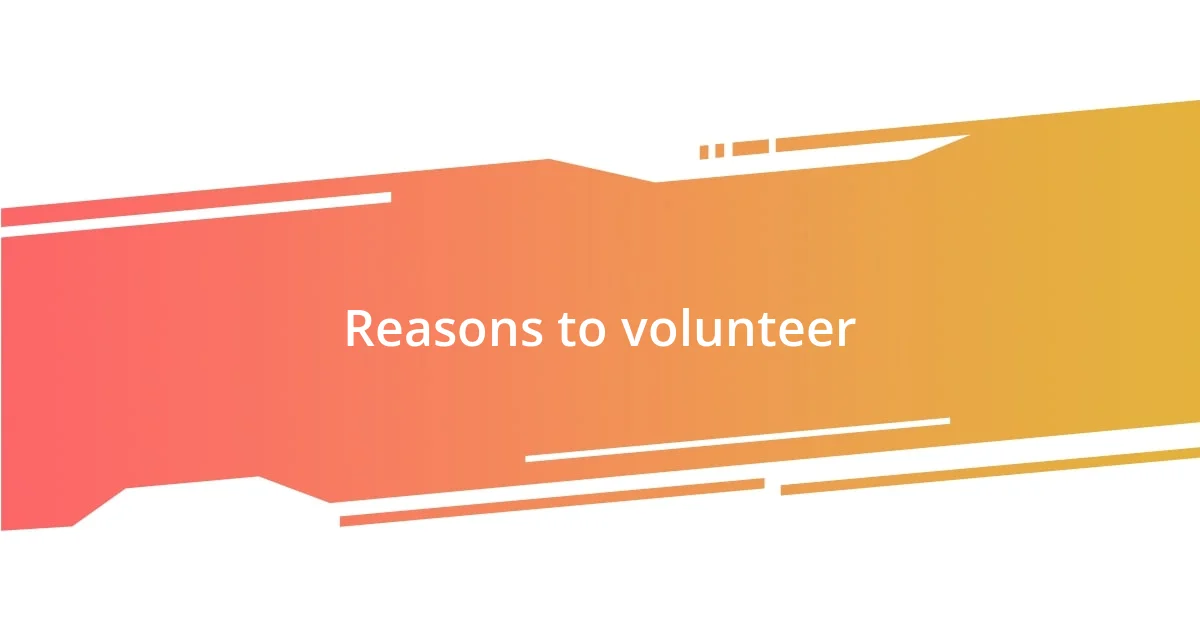
Reasons to volunteer
Volunteering offers countless benefits, both to the individual and the community. One reason I find volunteering so rewarding is the opportunity to develop new skills. For instance, while assisting a nonprofit with their social media strategy, I honed my communication abilities and learned how to engage different audiences. These experiences have not only enhanced my resume but also empowered me to make a tangible impact.
Here are some key reasons to consider volunteering:
- Skill Development: Gain practical skills that can boost your career.
- Networking Opportunities: Meet like-minded individuals and professionals in your field.
- Boosting Mental Health: Experience a sense of purpose and improved well-being.
- Community Impact: Contribute to meaningful local causes and help those in need.
- Personal Growth: Discover new interests and deepen self-awareness through diverse experiences.
Every time I volunteer, I’m reminded of the transformative power it holds. Small actions can ripple out, creating waves of change that often surprise us. When I took part in a fundraising run, feeling the energy of the crowd was electrifying, and witnessing firsthand how our efforts translated into support for community programs was immensely fulfilling. It’s moments like these that reinforce why lending a helping hand matters—both for us and the people we touch.
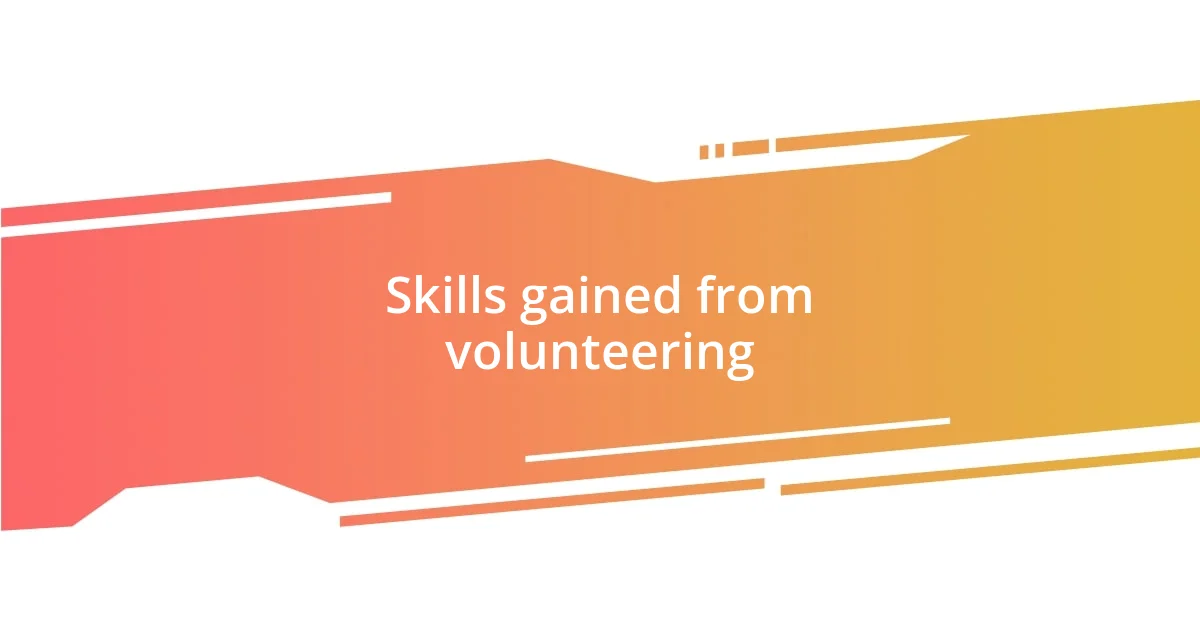
Skills gained from volunteering
Volunteering is a treasure trove of skills just waiting to be uncovered. Each experience, regardless of its scope, carved out a niche in my abilities. For example, the time I organized a community cleanup event challenged my leadership skills. I had to coordinate with different volunteers, manage logistics, and motivate everyone to stay engaged. Feeling the collective energy of that team gave me a new appreciation for collaborative effort.
In addition to leadership, volunteering offers a real-world practice ground for problem-solving. I remember helping at a local shelter where unforeseen challenges seemed to pop up regularly, like sudden changes in the guest list or resource shortages. My approach shifted quickly from panic to creativity as I brainstormed with the team and found alternative solutions. It was exhilarating to witness how thinking on our feet could lead to effective strategies and stronger teamwork.
If you think about it, the skills gained from volunteering extend beyond the immediate tasks at hand. For example, I once assisted in tutoring adults learning English as a second language. It forced me to become adaptable and patient, honing my communication skills in ways I had never expected. Crafting explanations that resonated took practice, and through this process, I found joy in every small success—those moments are what make volunteering so enriching and unforgettable.
| Skills Gained | Description |
|---|---|
| Leadership | Managing teams and coordinating events, as I did during a community cleanup. |
| Problem-Solving | Finding creative solutions during challenging scenarios at a local shelter. |
| Communication | Enhancing clarity and patience while tutoring adults in English. |
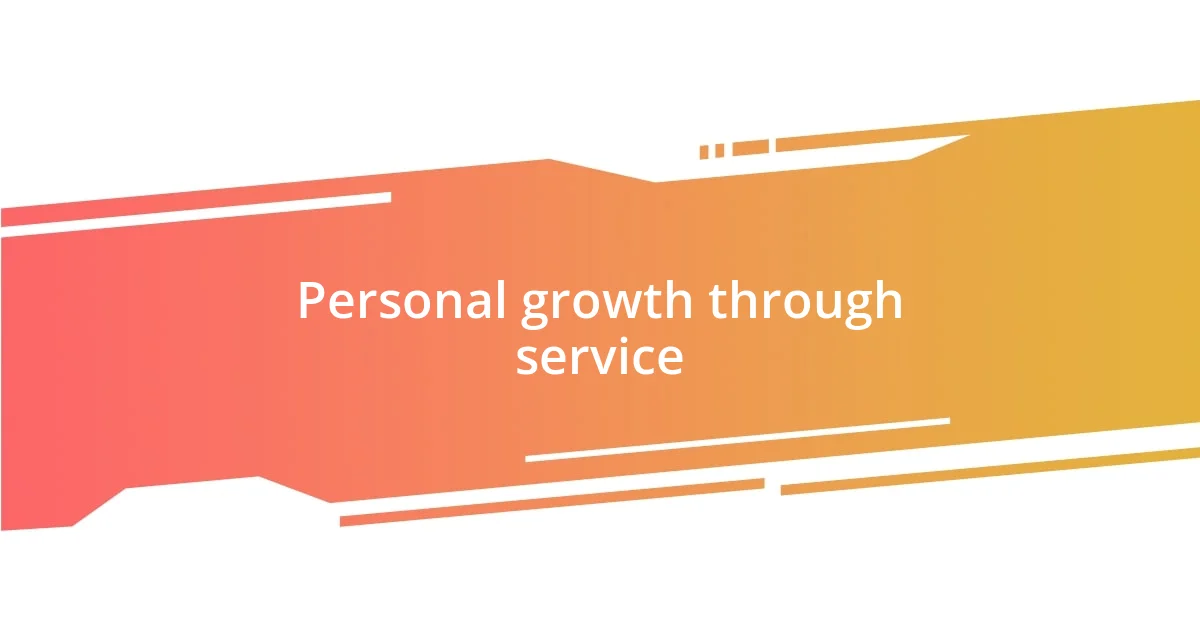
Personal growth through service
When I think about personal growth through service, I can’t help but reflect on the amazing moments that pushed me beyond my comfort zone. Once, I volunteered at a youth mentorship program. I remember feeling nervous initially, wondering if I had anything valuable to offer. However, as I connected with the kids and shared my experiences, I discovered a depth of empathy within myself that I hadn’t recognized before. It was a powerful reminder of how stepping into new roles can lead to unexpected personal revelations.
Another pivotal experience was working with a food bank during the holidays. Every time I handed a bag of essentials to families in need, I felt a profound sense of gratitude wash over me. It struck me how much joy there is in giving, and it prompted me to reevaluate my priorities. I began to realize that personal fulfillment doesn’t always come from personal achievements but can stem from uplifting others. Have you ever noticed how a simple act of kindness can spark that warm, uplifting feeling? It truly opened my eyes.
Volunteering has also taught me the value of resilience. There was a time when I supported a local environmental initiative, and the amount of challenges we faced seemed overwhelming. From bad weather to low turnout, it was easy to feel defeated. But when my fellow volunteers and I rallied together, sharing encouragement and problem-solving ideas, I felt my own resilience blossom. It made me ask myself—how often do we underestimate our ability to overcome obstacles when we work as a team? Just like that experience, every struggle reinforced my belief that we grow stronger together through serving others.
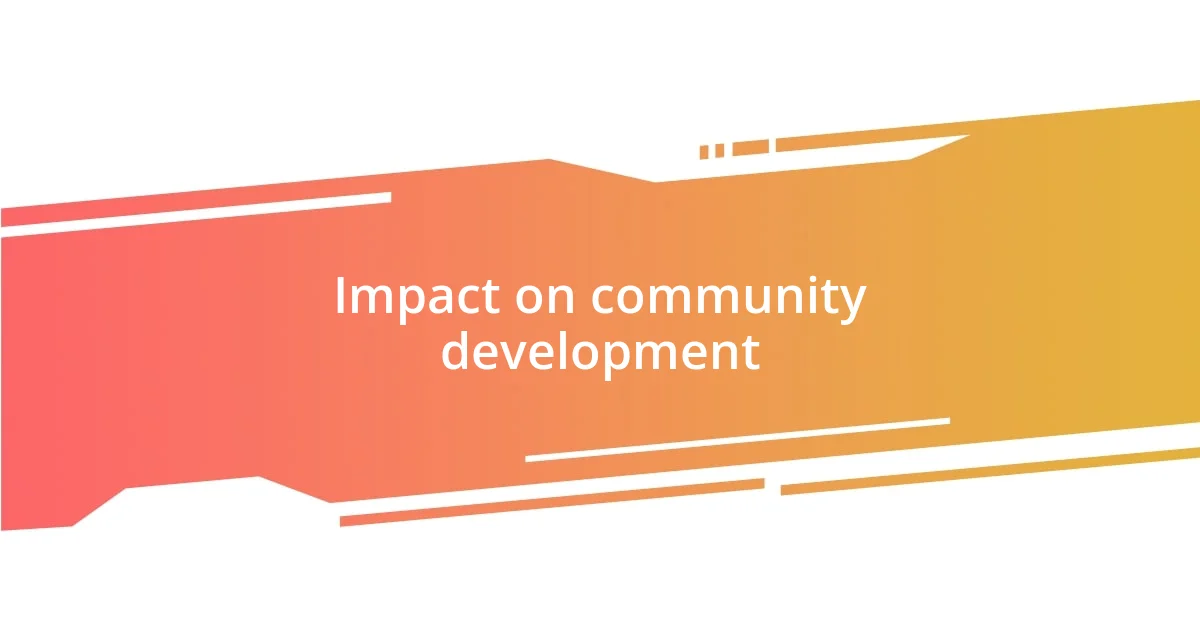
Impact on community development
Volunteering profoundly influences community development in ways that often go unnoticed. For instance, I participated in a neighborhood gardening project that aimed to beautify a local park. Working alongside residents, we not only cultivated flowers but also cultivated relationships, which fostered a sense of belonging and ownership in our shared space. It’s fascinating how a few plants and a bit of hard work can transform not just an area but also the connections among the people living there.
I vividly remember a fundraising event for a local shelter I spearheaded, which brought together diverse groups from the community. The atmosphere was electric, with individuals from various backgrounds coming together for a common cause. Witnessing their stories and shared laughter was a reminder of how powerful collective action can be. Have you ever thought about how these moments of unity can lay the groundwork for a healthier, more engaged community? It reminds me that collaboration ignites change and reinforces ties that bind us together.
Moreover, volunteering creates ripple effects that can elevate a community’s overall well-being. I helped coordinate skill-building workshops for youth, teaching everything from basic computer literacy to resume writing. The look of determination in their eyes as they learned was inspiring. It made me realize that investing time in others not only equips them with essential skills but also energizes the entire community. Isn’t it amazing how empowering others can be one of the most effective strategies for long-term progress? Each small contribution we make can lead to larger transformations in our neighborhoods.
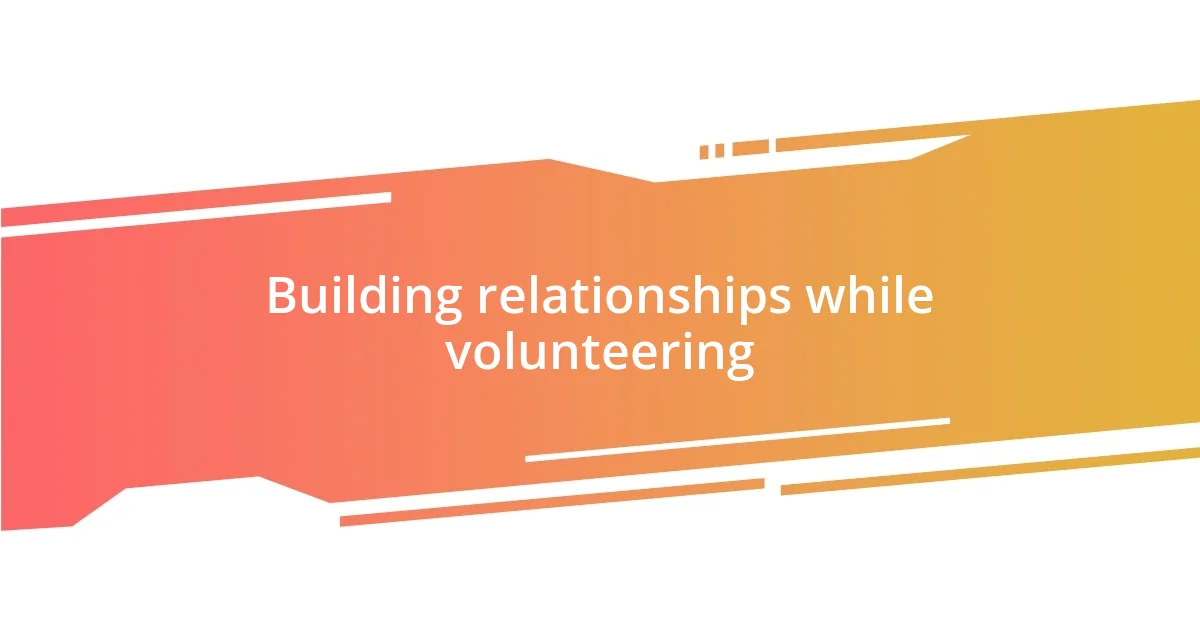
Building relationships while volunteering
Building relationships while volunteering is a truly rewarding experience that often surprises me. I remember one particular instance when I volunteered at a local animal shelter. At first, I was focused on completing my tasks, but as I started chatting with other volunteers, I discovered shared passions and stories that deepened our connections. It felt like we were more than just a team; we became a supportive community, united by our love for animals and our desire to make a difference. Have you ever found that common ground with someone unexpectedly? It can create bonds that last far beyond that service day.
I’ve also seen how volunteering can forge connections across different age groups and backgrounds. For instance, mentoring seniors in a digital literacy program opened my eyes to the richness of intergenerational relationships. We learned from each other—while I taught them about technology, they shared wisdom from their life experiences. This exchange was like a dance of knowledge, where each step strengthened our relationship. Isn’t it fascinating how simple acts of patience and listening can bridge generational gaps? It reminded me that everyone has something valuable to share, regardless of age.
Lastly, I often reflect on the friendships that blossomed during a week-long community clean-up initiative. Initially, we were just strangers gathered for a cause, but as we worked side by side, swapping stories and laughter amidst the dirt and debris, we became friends. By the end of the week, it felt surreal to think that we started as a group of individuals but transformed into a team united by a shared mission and mutual respect. Doesn’t it feel rewarding to witness how working toward a common goal can create lasting relationships? Those connections are often the best part of the volunteering experience, reminding me that at its core, service is about people coming together.
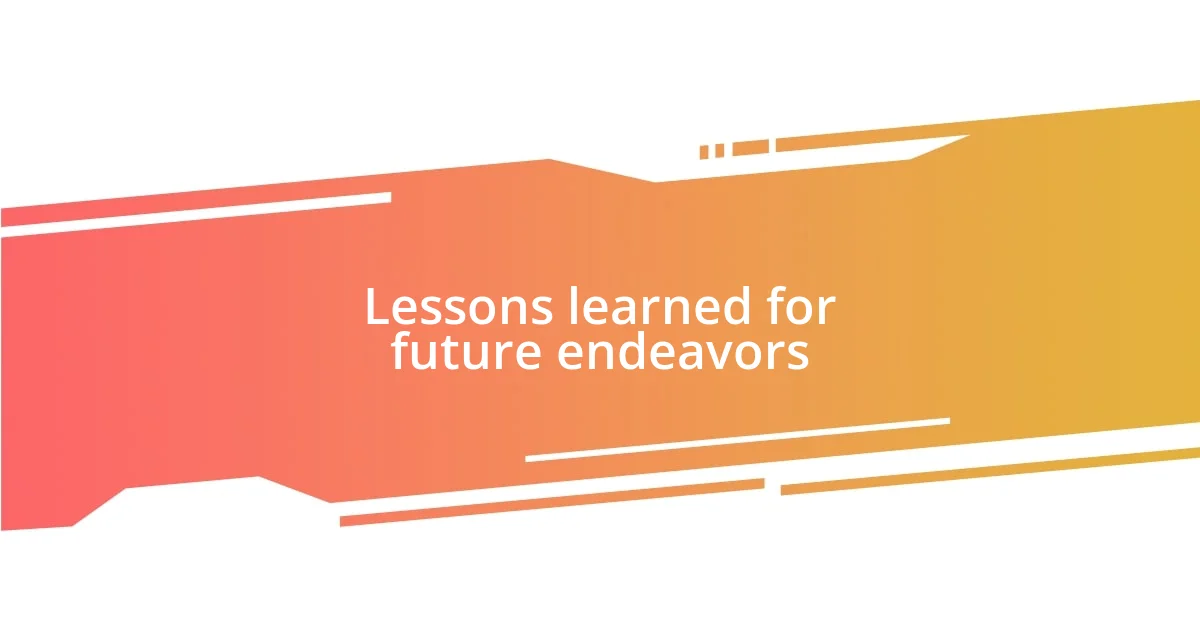
Lessons learned for future endeavors
Volunteering has taught me that adaptability is crucial for future endeavors. I recall a time I volunteered at a food bank where things didn’t go as planned. Two volunteers didn’t show up, and we had a larger-than-expected crowd. Instead of panicking, we quickly organized a system to effectively distribute food and serve those in need. This experience reinforced that flexibility in our approach not only helps in troubleshooting challenges but also encourages creativity in problem-solving. Isn’t it interesting how unexpected changes can lead to unforeseen opportunities?
Another important lesson learned is the value of listening. During a literacy program I participated in, I helped adults improve their reading skills. One session, a participant shared their fears about returning to school after many years. By simply being present and listening, I was able to encourage them, showing that support often means more than just teaching. This incident illustrated that sometimes the most meaningful contributions come from creating a safe space for others to express themselves. Have you ever noticed how powerful a listening ear can be in fostering growth?
Finally, I’ve realized that passion is the fuel for sustained involvement. One summer, I dedicated time to a local outreach program. The emotional highs and lows of supporting families in crisis deeply affected me. It ignited a fire to keep engaging, not just in that initiative, but in related efforts focused on community welfare. This taught me that when our hearts align with our actions, we unlock a level of commitment that drives change. How often do we allow our passions to guide our choices? Embracing our enthusiasm can lead to incredible growth, both personally and in service.
